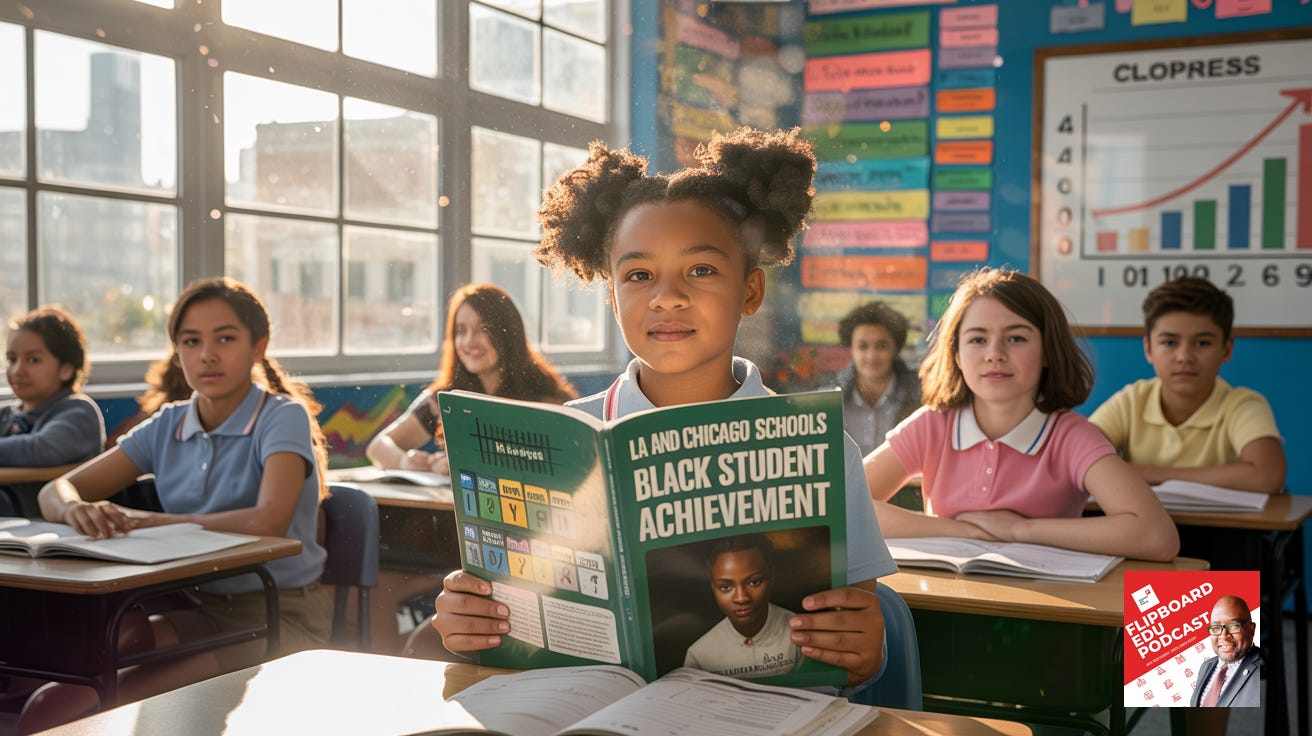Controversy in Chicago: Can Targeted Support for Black Students Survive Legal Scrutiny?
LA and Chicago Schools Launch Ambitious Plans to Tackle Black Student Achievement Gaps Amid Systemic Concerns
Recognizing persistent and significant disparities in educational outcomes, both the Los Angeles Unified School District (LAUSD) and Chicago Public Schools (CPS) have launched comprehensive initiatives aimed squarely at boosting the success of their Black students. These plans, born from the acknowledgment of historical and ongoing systemic inequities, represent major efforts by two of the nation's largest districts to create more equitable learning environments.
Acknowledging the Divide: Why These Plans Are Needed
Both districts explicitly state that these initiatives are necessary to address longstanding gaps between Black students and their peers. LAUSD's Black Student Achievement Plan (BSAP) was created to be "directly responsive to the unique needs of Black students due in large to the historic and ongoing social and economic conditions experienced by Black people."
Similarly, Chicago's Black Student Success Plan (BSSP) highlights ongoing issues despite past efforts, citing "disproportionate discipline statistics," "inequitable travel distances," "persistent gaps in academic achievement," and limited access to rigorous coursework and activities for Black students. The CPS plan notes these inequities create a "cycle that extends from one generation to the next."
Supporting this view, research bodies like EdTrust-West have pointed out that Black students in California often score significantly lower than white counterparts, arguing the current system "has been designed to create exactly the results it continues to create."
Inside the Plans: Multifaceted Approaches
While tailored to their specific contexts, the LAUSD and CPS plans share common threads, focusing on academics, social-emotional well-being, cultural identity, and systemic reform.
LAUSD's BSAP: This plan aims for high academic performance, strong social-emotional skills, and positive cultural identity. Key components include developing and auditing culturally responsive curriculum, using diagnostic tools to identify learning gaps, providing targeted math support, reinforcing the Academic English Mastery Program (AEMP) for culturally responsive pedagogy, and creating Individual Student Success Plans (ISSPs) developed collaboratively by counselors, students, and parents. Specific staffing roles like School Climate Advocates and Restorative Justice Teachers are also part of the model, alongside community partnerships and advisory councils.
CPS's BSSP: This five-year plan emphasizes "Identity, Culture, and Voice," aiming to empower students and celebrate diversity. It focuses on implementing culturally relevant curriculum (specifically including Black history and culture), transforming policies to ensure equity, recruiting and supporting Black educators (including partnerships with Historically Black Colleges and Universities (HBCUs)), and engaging meaningfully with the community. The plan utilizes a "Targeted Universalism" approach to provide tiered support.
These district-level plans echo principles outlined by organizations like EdTrust-West, which advocate for examining educators' own biases, creating systemic change ("seeing the water" of systemic issues), implementing culturally relevant and sustaining pedagogy, and mitigating broader disadvantages through community partnerships.
Cultural Relevance: A Cornerstone of Success
A critical theme across all efforts is the vital importance of affirming Black students' identities and integrating their culture into the educational experience. LAUSD's AEMP and CPS's focus on identity and culturally responsive instruction directly address this. As one CPS student was quoted, feeling "loved and appreciated" and "part of a family" at school is crucial. Experts stress that culturally sustaining pedagogy goes beyond responsiveness, actively viewing schools as places where students' cultural ways of being are valued and maintained.
Implementation, Accountability, and Challenges
Both districts are committed to data-driven implementation and ongoing monitoring. LAUSD's BSAP is designed as a "dynamic document," adjusted based on feedback and measured by improvements in specific metrics related to academics, engagement, school experience, and support. CPS's BSSP aligns with district data transparency policies and state law requiring a Black Student Achievement Committee (developed through extensive stakeholder collaboration).
However, these targeted efforts are not without hurdles. CPS's BSSP is currently under investigation by the U.S. Department of Education following a legal challenge from parents alleging the plan discriminates against students of other races, potentially violating Title VI of the Civil Rights Act. CPS maintains the plan complies with state law. The outcome of this investigation could impact federal funding and set precedents for similar initiatives nationwide.
Investing in Educators
The success of these ambitious plans hinges significantly on the teachers and leaders implementing them. Both districts recognize this, incorporating professional development focused on cultural relevancy, anti-racism (LAUSD), and targeted recruitment and support for Black educators (CPS).
Moving Forward
The Black Student Achievement Plans in Los Angeles and Chicago represent significant commitments to addressing deep-seated educational inequities. By focusing on culturally relevant practices, targeted support, and systemic change, these districts aim to rewrite the narrative for their Black students. While challenges, including legal scrutiny, underscore the complexities involved, these initiatives mark a determined push towards greater equity and opportunity in public education.





